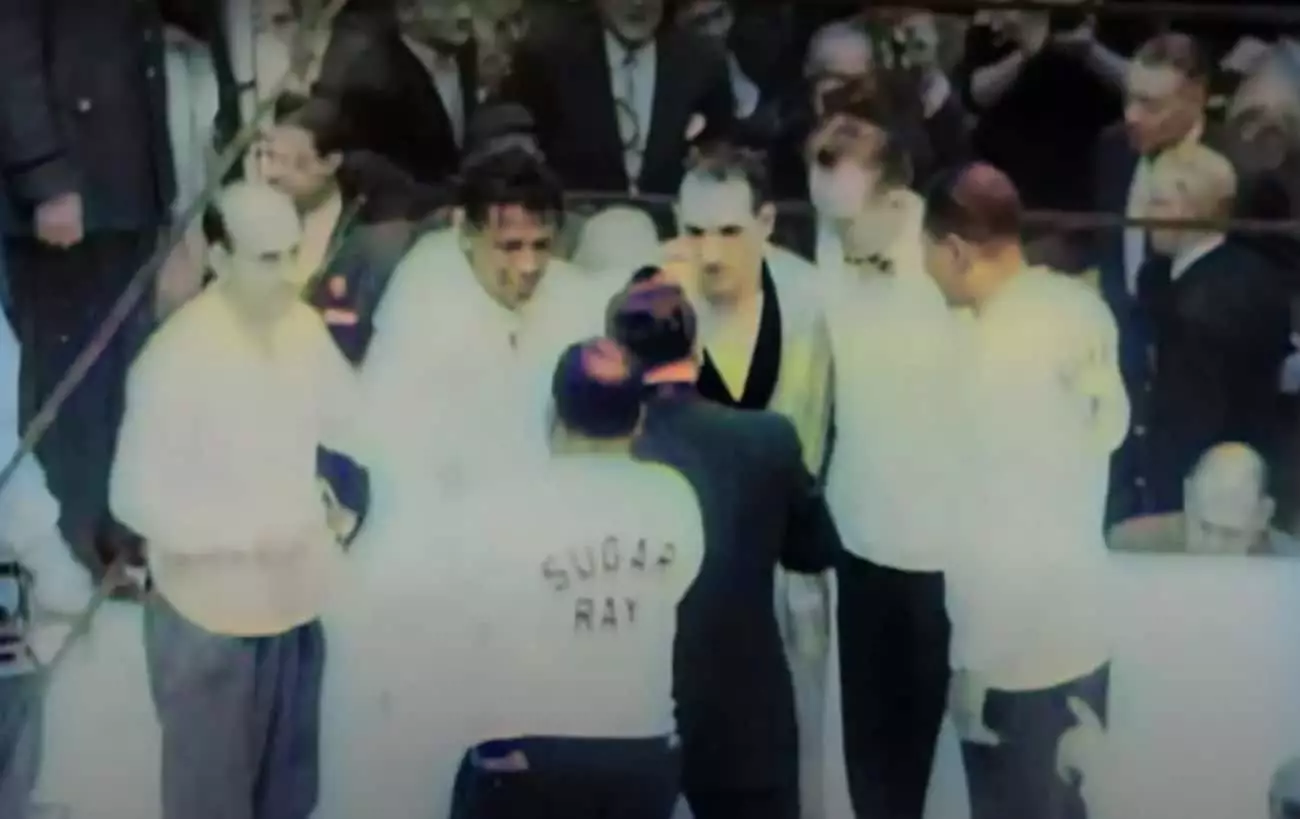Sugar Ray Robinson is a name synonymous with boxing greatness. His legacy is built not only on his astonishing skill inside the ring but also on the fierce rivalries that defined his career. Among these rivalries, his encounters with the rugged Gene Fullmer stand out as a remarkable saga of determination, resilience, and unforgettable moments. This article delves into their tumultuous bouts, exploring not just the facts but also the emotional and historical significance behind each fight.
A Clash of Titans
The first encounter between Sugar Ray Robinson and Gene Fullmer took place on a fateful day in 1957, a date etched in the annals of boxing history. Robinson, then 36 years old, had already established himself as a formidable champion with a dazzling record of 140 wins against only 4 losses. In stark contrast, the younger Fullmer, at 26, brought his own fierce reputation and a record of 37-3 into the ring. Robinson, the slick stylist, faced off against Fullmer, the brawler whose tenacity was matched only by his unyielding chin.
The fight was nothing short of brutal. In the seventh round, Fullmer not only landed punishing blows but also scored a knockdown, leaving Robinson reeling. Despite a severe cut above his eye and the relentless pressure from Fullmer, Robinson showcased his legendary grit and determination to survive the encounter. Ultimately, however, the judges declared Fullmer the victor, marking the beginning of a rivalry that would stretch boundaries of skill and resilience.
Their first battle ignited a fierce determination in Robinson, who was not one to remain down after a defeat. Just four months later, the two champions met again, this time in Chicago. However, this rematch would become legendary for reasons that extended beyond the mere act of avenging a loss. At nearly 37 years old, Robinson seemed to defy age itself. The specter of retirement was looming, but instead of succumbing to it, he produced one of the most electrifying knockouts in boxing history.
In the fifth round, as Fullmer advanced, Robinson executed a perfectly timed left hook that landed flush on Fullmer’s jaw. The result was instantaneous; Fullmer was knocked out cold. This moment was so remarkable that it became a defining highlight of Robinson’s career and a lesson for aspiring boxers regarding the art of timing and precision. The rematch finished with a score of 1-1, but the spectacle of this knockout left an indelible mark on the boxing community.
The third meeting of these fierce competitors took place in Boston in December 1960. Both men were not only looking for victory but also redemption; Fullmer aimed to regain his lost luster after his previous defeat while Robinson sought to prove he still had what it took to be at the top of the sport. Now approaching 40 and with a record of 144 wins, Robinson was no stranger to the demands of the ring.
This fight was laden with tension and drama, stretching the full distance of 15 rounds. The contest was fiercely contested, showcasing the relentless spirit of both fighters. Although Robinson appeared to have performed well and many believed he deserved the decision, the judges ruled the bout a controversial draw. This outcome led to divided opinions; had Robinson been awarded the victory, he would have been celebrated as a six-time middleweight champion, enhancing his legacy even further.
The Final Chapter
Despite the grueling nature of their previous encounters, Fullmer and Robinson pressed on to a fourth and final showdown in Las Vegas. Yet, the boxing world would witness a different Sugar Ray—a man whose body had borne the scars of countless fights, who had faced relentless adversaries over the years. Fullmer, however, seemed rejuvenated and managed to secure a clear decision victory, thus concluding their saga with a record of 2 wins, 1 loss, and 1 draw in favor of Fullmer.
As the dust settled on their rivalry, it became evident that their encounters were more than mere athletic competitions; they were a testament to the spirit of sportsmanship, resilience, and the enduring quest for greatness. Both fighters emerged victorious in their own right—one as a champion who defied age, and the other as a relentless warrior who pushed the limits of human endurance.
In retrospect, the legacy of Sugar Ray Robinson and Gene Fullmer transcends their individual records. Their rivalry remains an essential chapter in boxing history, showcasing the sport’s raw intensity and the human capacity to overcome challenges. Indeed, while the scores may have crowned Fullmer the victor, it is the legacy of their battles that endures in the hearts of boxing enthusiasts today.

